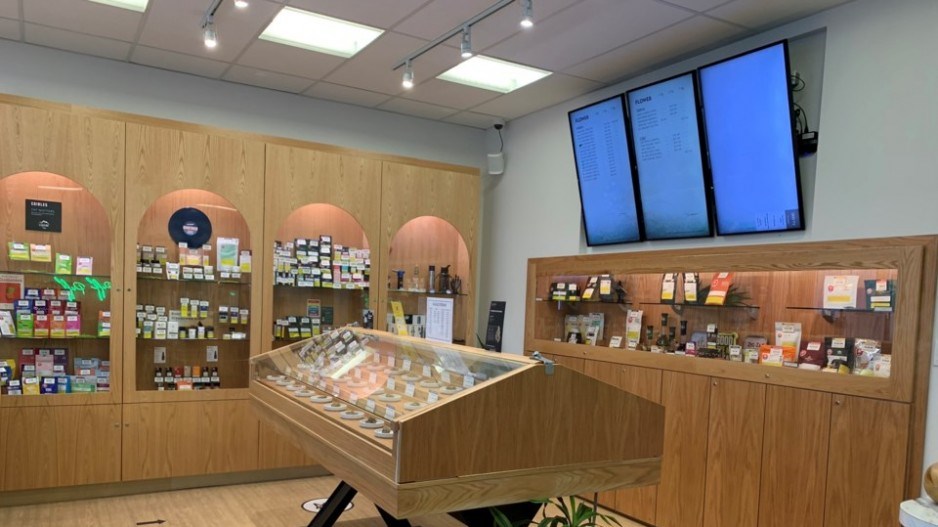British Columbian cannabis shoppers will have another legal platform to help them get their weed starting tomorrow, when food-delivery giant Uber Eats adds cannabis to its menu.
The move was widely expected given that the branch of San Francisco-based Uber Technologies Inc. (NYSE:UBER) last year started offering cannabis sales through its app in Ontario.
Uber Eats drivers do not deliver the products. The initiative is largely an advertising and accessibility-based initiative, where Uber Eats customers are able to click a tab on the app to scroll through eligible cannabis retailers and connect to a cannabis marketplace site known as Leafly
Individual retailers opt to be accessible on Leafly.
Customers can then click through to cannabis retailers on Leafly, place orders with the individual retailers and have the individual retailers' staff deliver the products.
This is the same system that Uber Eats uses in Ontario.
Age verification takes place at the door.
Retailers set to be involved in this program on Day 1 include:
• Sea to Sky in Vancouver;
• Original Farm Cannabis in Vancouver and Victoria;
• Leisure for Cannabis in Vancouver;
• ARCannabis in Vancouver;
• North Shore Cannabis in Vancouver; and
• Queensborough Cannabis in New Westminster.
The fees that Uber Eats charges vary by the retailer as different agreements are reached with each one, Uber Eats spokeswoman Keerthana Rang told BIV this morning.
"Businesses choose to be on Uber Eats because it allows them to attract new customers, grow their existing customer base, generate repeat orders, and increase the visibility of their brand," she said.
Industry insiders who spoke with BIV said they are wary and that the development is a double-edged sword: it may help some retailers sell products to customers that they would otherwise not find, but Uber Eats is likely to claim much of the profit margin.
"It's no different than with restaurants that offer take-out," Inspired Cannabis co-founder and president Jesse Dhami told BIV.
"Restaurant owners have complained that it is not economical because DoorDash or Uber get the lion's share of the benefit of the sale."
The B.C. government first placed a temporary 15-per-cent cap on meal-delivery companies' fees placed on entire orders, and then upped that to be a permanent 20-per-cent cap at the start of this year.
Restaurants may select enhanced services, such as enhanced in-app visibility, ads, or promotions for a fee that is above 20 per cent of an order's cost.
DoorDash Inc. (NYSE:DASH) last spring launched a partnership with a Toronto cannabis retailer to offer cannabis delivery in that city. It does not yet facilitate cannabis deliveries in B.C.
Vancouver-based Dhami recently opened his 16th Inspired Cannabis store in Canada – a flagship location at 1032 Robson Street that includes a large showroom for a variety of cannabis brands. He operates six other stores in B.C., two in Saskatchewan and seven in Ontario.
Delivery sales currently generate a low single-digit percentage of his revenue, and his goal is to grow that business to be about seven per cent of his sales, he said.
"We'll probably inquire with Uber for more information about what the deliveries, and the whole process would look like."
Retail Cannabis Council of BC's executive director Jaclynn Pehota told BIV that she hopes the move does not encourage Uber Eats customers to search for the lowest cost products that have the highest concentrations of THC.
One of her concerns is that the profit margin for retailers will be diminished but retailers might feel obliged to be on the platform.
The potential scenario of feeling a need to be on meal-delivery apps, however, would be years into the future.
"The majority of online cannabis sales in B.C. are in the illicit market," Pehota stressed.
"Realistically speaking, legal operators are competing directly with people who are offering an ounce of cannabis, at this point, for $50."
Cannabis deliveries in B.C. slow to develop
The B.C. government enjoyed a 34-month monopoly on cannabis delivery in the province after Canada, in October 2018, legalized recreational cannabis sales.
The only place that B.C. customers during that time could order legal cannabis online and get home delivery was from the government's online store.
Illicit cannabis sellers at the time flourished online, prompting threats of police stings.
The B.C. government in March 2020 took the baby step of allowing private legal cannabis retailers to conduct sales transations online, but it required customers to go to stores to complete payments and to pick up items.
In August 2020, the B.C. government started to allow licensed private cannabis retailers to sell products and collect payment online, but it still required customers to pick up their purchases at bricks-and-mortar stores.
Even then, onerous restrictions were placed on the sector, such as that the retailers had to own the vehicles that they were using to deliver the cannabis, and that their staff had to undergo police screening and get licensed by the province – restrictions that have since been dropped.
As of July 2022, legal B.C. cannabis retailers have been able to use third-party carriers, such as Canada Post or other delivery-service providers, in addition to being able to deliver directly to customers. These delivery services will not be able to be used on orders that originate from Uber Eats, the company told BIV this morning.
Dhami told BIV that he previously linked with the third-party delivery company Wyngit Delivery Inc.
"They were trying to get into the B.C. market," he said of Wyngit. "They started with us, and a couple of other cannabis companies but the economics weren't making sense because there were not enough deliveries happening."


